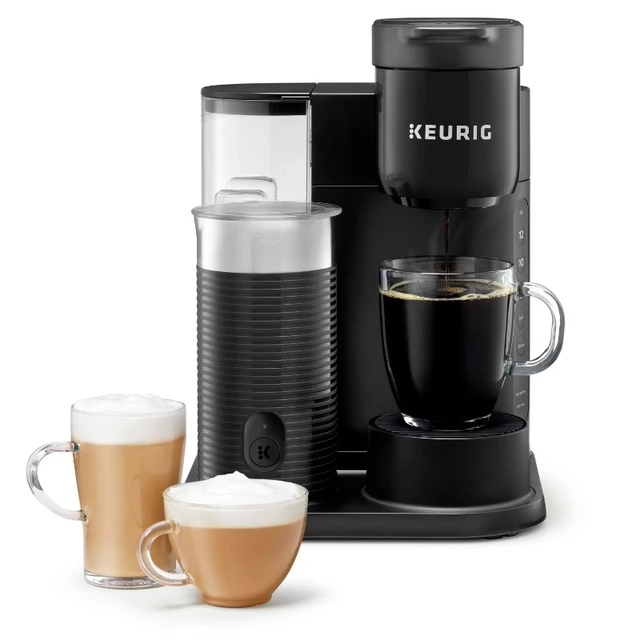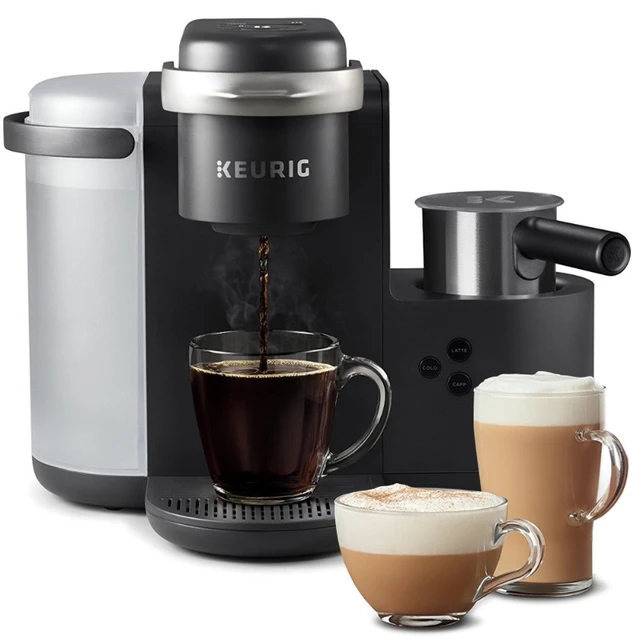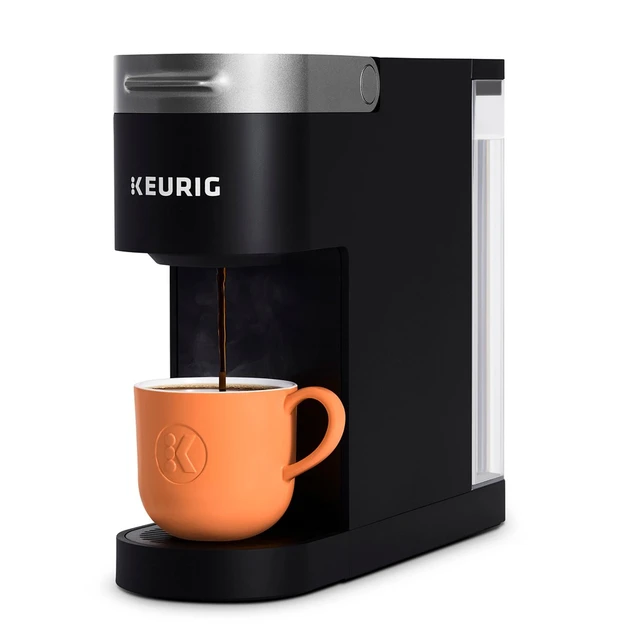
Introduction:
In today’s fast-paced world, the convenience of single-serve coffee makers, such as the Keurig, has made it easier for coffee lovers to enjoy their favorite brews. However, as with any popular product, it’s crucial to evaluate both its advantages and disadvantages, especially regarding health. The question arises: Is Keurig coffee bad for you? This article delves deep into the world of Keurig coffee, examining its health effects, environmental impact, cost-effectiveness, and more, ensuring that you are well-informed on this widely-used coffee maker.
The Convenience Factor of Keurig Coffee
Instant Gratification
One of the most appealing aspects of Keurig coffee is its convenience. With just a press of a button, users can enjoy a fresh cup of coffee in under a minute. This instant gratification is particularly appealing to those with busy lifestyles who may not have the time or patience to brew traditional coffee.
Variety of Flavors
Keurig machines come with a wide array of coffee pods, known as K-Cups, which allow consumers to choose from different brands and flavor profiles. This variety can make it easier for individuals to tailor their coffee experience to their mood, whether they prefer a robust dark roast, a light breakfast blend, or even flavored coffees.
Minimal Cleanup
Traditional coffee brewing often involves multiple components—filters, carafes, and coffee grounds—that need to be cleaned. In contrast, the Keurig simplifies this process. With K-Cups, users just dispose of the pod after brewing, making it a low-maintenance option.
Despite these advantages, it’s essential to explore the health implications of consuming coffee made through a Keurig machine.
Health Implications of Keurig Coffee
Caffeine Content
One of the primary concerns regarding coffee consumption, including Keurig coffee, is caffeine intake. Most K-Cups contain a varying amount of caffeine, depending on the brand and type of coffee. While caffeine can have benefits, such as increased alertness and improved cognitive function, excessive consumption can lead to negative side effects.
Potential Side Effects of Excessive Caffeine
Too much caffeine can result in jitteriness, headaches, nausea, and insomnia. In addition, drinking high amounts of caffeine may lead to increased heart rate and anxiety. If you’re a frequent Keurig user, it’s wise to monitor your overall caffeine intake, especially when combined with other caffeinated beverages like energy drinks, sodas, or even tea.
Additives and Sugar Levels
When using a Keurig, many individuals opt for flavored K-Cups or add cream, milk, and sugar to enhance their drinks. While these additives can make coffee more enjoyable, they often come with added calories and sugar, which can negatively impact health.
The Risks of High Sugar Intake
Regularly consuming high sugar levels has been linked to various chronic health conditions, including obesity, diabetes, and heart disease. If you frequently indulge in sugary coffee beverages, it may be time to reassess your choices and consider healthier alternatives, such as using less sugar or switching to unsweetened coffee options.
Acrylamide Concerns
Another health consideration involves the compound acrylamide, which is often formed during high-temperature cooking processes, including coffee roasting. K-Cups, especially those utilizing dark roasts, may contain acrylamide levels, which have raised concerns about their potential link to cancer.
Understanding Acrylamide
Acrylamide has been classified as a potential human carcinogen by the International Agency for Research on Cancer (IARC). While the levels found in coffee are generally low, it’s worth noting that frequent consumption over time may pose risks. Though more research is needed, being cautious about intake is advisable.
Environmental Considerations
The Waste Factor
While Keurig coffee presents a convenient option for users, the environmental impact cannot be ignored. The disposal of K-Cups has raised significant concerns, as they contribute to landfills, with millions of cups being used and discarded daily.
The Plastic Problem
Most K-Cups are made of plastic, which can take hundreds of years to decompose. This plastic waste is a crucial aspect of the broader conversation regarding environmental sustainability and consumer behavior.
Efforts to Reduce Impact
In recognition of these environmental concerns, some companies are striving to produce recyclable or compostable K-Cups. However, consumer education is essential for ensuring that these options are used correctly, as not all K-Cups are created equal.
Cost-Effectiveness of Keurig Coffee
Initial Investment and Long-Term Considerations
Buying a Keurig machine can require a significant initial investment, ranging from $60 to several hundred dollars, depending on the model. However, the long-term costs of purchasing K-Cups can also add up over time, especially if you are a frequent coffee drinker.
Comparing to Traditional Brewing Methods
When compared to traditional brewing methods—like using a French press or a drip coffee maker—Keurig’s approach may prove more expensive. K-Cups typically cost significantly more per serving than buying coffee beans or grounds in bulk.
Budget-Friendly Alternatives
For those who still want to enjoy the convenience of a Keurig without breaking the bank, exploring options such as reusable K-Cups can be beneficial. With these, users can fill their cups with their own freshly ground coffee, potentially saving money while also reducing waste.
The Social Aspect: Coffee Culture and Community
Enjoying Coffee Together
Coffee has long been a social activity, whether meeting friends at a café or gathering around a pot of brewed coffee. The Keurig machine, while convenient for individual servings, may detract from the communal experience of sharing a pot of coffee.
The Decline of Traditional Brew Methods
As more people adopt single-serve systems, there may be a decline in traditional brewing methods. This shift impacts the coffee culture, moving away from shared experiences to individual consumption.
Reconnecting Over Coffee
If you enjoy the ritual of coffee with others, consider using a French press, pour-over, or traditional drip coffee maker to facilitate deeper connections. While Keurig machines certainly serve a purpose, personal connections over shared drinks may be worth considering.
Making Informed Choices
Understanding Your Body
In addressing the question, “Is Keurig coffee bad for you?” it’s crucial to consider your body’s individual needs and responses. Monitoring caffeine intake, assessing how additives affect your health, and staying informed about environmental impacts can lead to healthier choices.
Finding Balance
As with many dietary choices, moderation is key. Enjoying a cup of Keurig coffee occasionally may not pose health risks, but being mindful of overall consumption and disposal habits can lead to better habits in the long run.
 Recommendations for Healthier Keurig Coffee
Recommendations for Healthier Keurig Coffee
Choosing Quality Pods
If you’re committed to using your Keurig machine, consider opting for high-quality, organic coffee pods. Many brands strive to offer options free from additives and artificial flavors, so you can enjoy a cleaner cup. Additionally, look for companies that prioritize sustainable and eco-friendly practices, reducing the negative environmental impact of single-use pods.
Limiting Sugar and Additives
To make your Keurig coffee healthier, be mindful of what you’re adding. Opt for smaller amounts of natural sweeteners like honey or maple syrup instead of artificial creamers filled with sugar. Pointedly choosing plant-based milk or creamers can also enhance the nutritional value without adding excessive calories.
Decaffeinated Options
If you’re worried about caffeine intake, consider brewing decaffeinated coffee pods. These options can allow you to enjoy the flavor without the jitters or anxiety that may come from regular coffee consumption.
Stay Hydrated
It’s crucial to balance your coffee intake with adequate hydration. Drinking coffee can lead to mild dehydration, so make sure to drink plenty of water throughout the day. This is especially vital if you consume coffee more than once.
Conclusion: Is Keurig Coffee Bad for You?
To sum up, the question of whether Keurig coffee is bad for you is not straightforward. While the convenience, variety, and ease of use make it a popular choice among coffee drinkers, potential health implications, environmental concerns, and costs do warrant consideration. By staying informed and making conscious choices, individuals can enjoy their coffee while minimizing potential downsides. Whether you choose to savor a cup from a Keurig or opt for more traditional methods, understanding the impacts of your choices can lead to a more balanced coffee experience.

